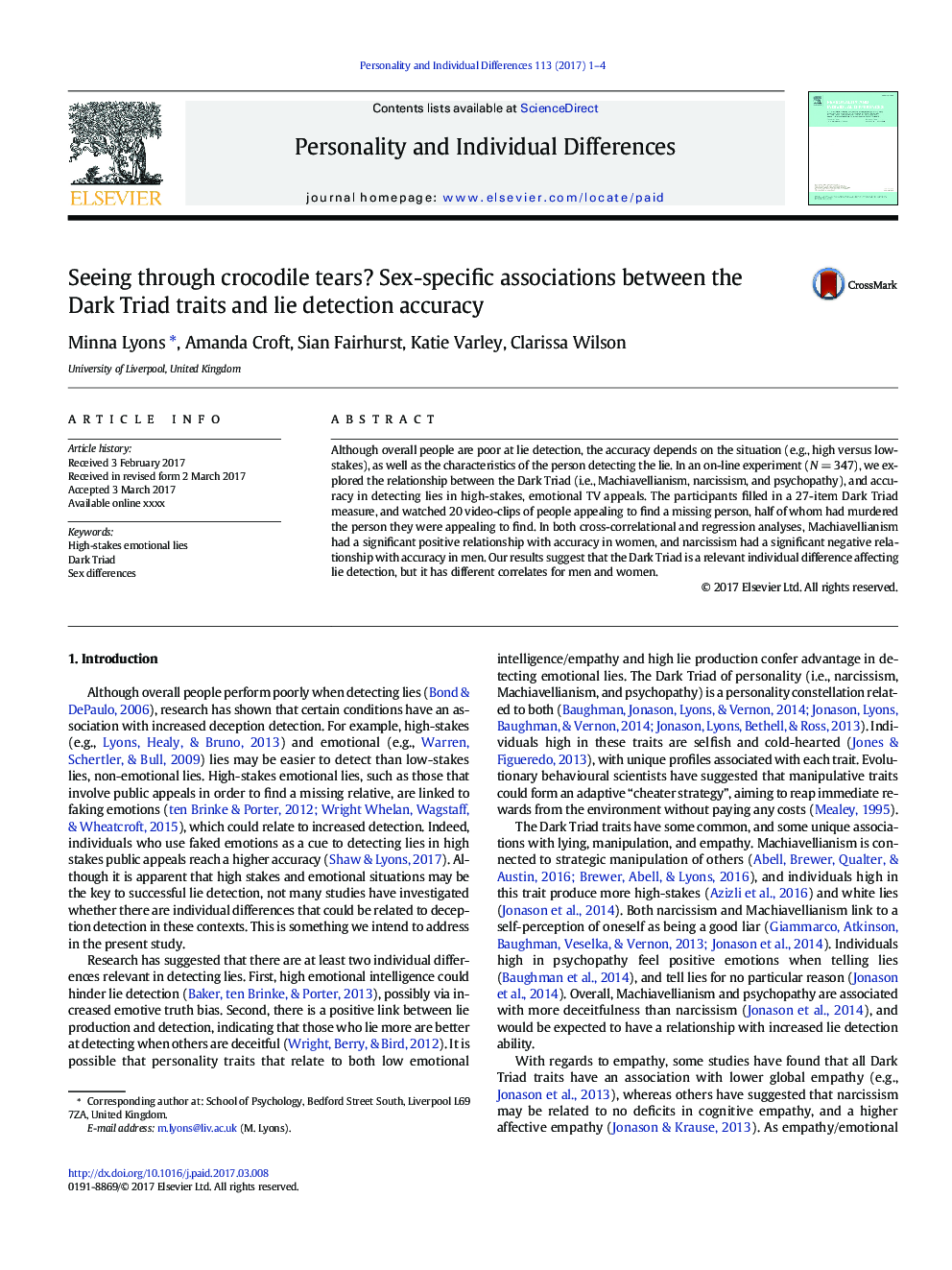| Article ID | Journal | Published Year | Pages | File Type |
|---|---|---|---|---|
| 5035750 | Personality and Individual Differences | 2017 | 4 Pages |
Abstract
Although overall people are poor at lie detection, the accuracy depends on the situation (e.g., high versus low-stakes), as well as the characteristics of the person detecting the lie. In an on-line experiment (NÂ =Â 347), we explored the relationship between the Dark Triad (i.e., Machiavellianism, narcissism, and psychopathy), and accuracy in detecting lies in high-stakes, emotional TV appeals. The participants filled in a 27-item Dark Triad measure, and watched 20 video-clips of people appealing to find a missing person, half of whom had murdered the person they were appealing to find. In both cross-correlational and regression analyses, Machiavellianism had a significant positive relationship with accuracy in women, and narcissism had a significant negative relationship with accuracy in men. Our results suggest that the Dark Triad is a relevant individual difference affecting lie detection, but it has different correlates for men and women.
Keywords
Related Topics
Life Sciences
Neuroscience
Behavioral Neuroscience
Authors
Minna Lyons, Amanda Croft, Sian Fairhurst, Katie Varley, Clarissa Wilson,
